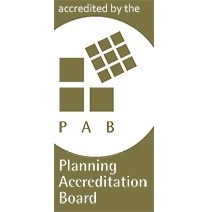MUP - The Program
The curriculum of any vital and dynamic program will change from time to time. The description which follows below applies to students entering the program in Fall 2021, and may differ for students entering in other semesters.
1. History and Theory
Develop knowledge of planning theory, history, and empirically-based concepts to inform futures and future planning interventions. Integrating perspectives from the social sciences and design fields, critically examine relationships between society and the built environment using lenses of equity and inclusion.
2. Practical Knowledge
Develop practical knowledge about how social, economic, political, and cultural institutions function in the context of planning and socially-inclusive outcomes with a view toward implementation of plans and policies.
3. Analytical Methods
Use analytic and inferential reasoning methods to understand complex social, economic, and environmental and spatial community conditions. Cultivate the ability to critically analyze data, employ culturally-appropriate and cutting-edge tools and methods that illustrate inequities across race, class, gender, ability, sexual orientation, and other forms of social separateness.
4. Professional Skills
Develop plan-making, policy-making, and regulatory compliance and design skills in the United States and international contexts. Critically interrogate how these practices intentionally and unintentionally exclude based on race, class, gender, ability, sexual orientation, and other forms of social separateness.
5. Ethics and Engagement
Gain professional planning and ethical practice experience through engaged learning domestically and abroad. Cultivate the ability to apply planning knowledge and tools in ways that are sensitive to culture and power dynamics, and enhance equity and inclusivity.
All enrolled graduate students should have in their possession an original copy of the curriculum they must satisfy based upon their date of matriculation. Copies of each student's required curriculum are sent to all students before they enter the program, are distributed again during graduate student orientation, and an official copy is placed in each student's file in the department.
- The curriculum varies depending upon the students’ entry into the program. Students usually enter the MUP program in the fall semester, although entry in the spring semester is an option.
- The program encourages full-time study; however, students may pursue their degree part-time.
- Students may apply to waive a required course based on prior coursework.
As you look at our program, you will notice that some courses are labeled “practicum” which has the same meaning as “studio”.

We accept and review applications on a continual basis throughout the year.
Submit your application by March 1, 2024 for preferred scholarship consideration.
Curriculum Program Requirements
Required core courses
- URP 501 Evolution of Urban Structure (Fall semester)
- URP 510 Planning Concepts and Controversies (Spring)
- URP 512 Research Methods for Planners (Fall)
- URP 538 Economic Concepts (Spring)
- URP 573 Land Use and Physical Planning (Fall)
- URP 581 Planning Practicum (6 credits) (Fall and Spring)
- URP 582 Planning Practicum (6 credits) (Fall and Spring)
Recommended course: URP 691 Colloquium (1 credit) (Fall)
Required Professional Competencies, choose one from each of two categories (6 credits)
- Geographic Information Systems (GIS):
- URP 569 GIS Applications (Offered in Spring)
- Design skills and design literacy
- URP 517 Graphic Communications in Planning (fall)
- URP 526 Site Planning and Design (normally offered in Spring)
- URP 565 Urban Design Understanding Form (normally offered in Fall)
- Group process
- URP 508, Race, Class, Gender
- URP 509 Qualitative Methods
- URP 577 Planning Techniques in Action (normally offered in Spring)
- URP 508, Race, Class, Gender
Note:
- Dual March/MUP students must take URP 569 as their competency. It is understood they receive design competency through their architecture education.
- Dual students will take either URP 581 or URP 582. The studio they take must be designated for their specialization.
Required MUP Specialization or Advanced Graduate Certificate (12 credits):
- Choose one of the following
- MUP Specialization consisting of an Introductory Course, Advanced Course, and specialized URP 582 Planning Practicum II
- Advanced Certificate in Historic Preservation, see separate information on requirements.
Required Culminating Exercise (3 or 6 credits)
- Choose one of the following
- Project Option: URP 697 Master’s Project Preparation, 3 credits
- Thesis Option: URP 698 Master’s Thesis Preparation and URP 699, Master’s Thesis, each 3 credits for a total of 6 credits.* (with permission)
NOTE: URP 697 Masters Project is a capstone course which must be taken in a MUP student’s final semester. Students, may, however, request to work on a 6-credit thesis instead of a 3-credit final project. Thesis is pursued through two courses, URP 698 Master's Thesis Preparation and URP 699 Master's Thesis, which should be taken consecutively. Thesis students would take URP 698 in the next-to-last semester and URP 699 in the final semester. Upon special permission of the chair, under special circumstances, students may take them simultaneously. Sometimes students start a thesis but fail to complete it. Such students are permitted to switch to the project option, but are then not allowed to use the thesis credits towards the MUP degree
General Electives (remaining credits)
- Students may choose from graduate courses offered within the department.
- They may also apply for up to 3 credits of URP 545 (Internship) and up to 3 credits of URP 599 (Independent Study). No more than 3 credits of internship and 3 credits of independent study may be applied to the MUP.
- As part of their academic program, students may complete one Internship course. Students are responsible for finding an appropriate site for their internship and must recruit a faculty advisor to oversee the internship. Students must submit an internship proposal form to the department chair for approval.
- You are allowed to take up to 6 credits outside the department. Be sure the course content is relevant to planning. If you are unsure, ask for written permission from the department chair.
MUP Curriculum Total: 52 credits
Explore our Specialization Options
MUP students who entered the program PRIOR to Spring 2024 may select one of our MUP specializations or the advanced graduate certificate in the second semester of study. Students choosing the advanced certificate will see the designation also listed on the their diploma.
Required Core Courses
- URP 501 Evolution of Urban Structure (Fall semester)
- URP 510 Planning Concepts and Controversies (Spring)
- URP 512 Research Methods for Planners (Fall)
- URP 538 Economic Concepts (Spring)
- URP 573 Land Use and Physical Planning (Fall)
- URP 581 Sustainable Communities Studio
- URP 582 Sustainable Communities Studio
- URP 691, Colloquium (1 credit) (Fall)
Required Professional Competencies, choose one from each of two categories (6 credits)
- Geographic Information Systems (GIS) and Analytics:
- URP 569, GIS Applications (offered in spring)
- URP 513, Quantitative Methods (not offered every year)
- Design skills and design literacy
- URP 517 Graphic Communications (typically offered in fall)
- URP 565 Urban Design Understanding Form (typically offered in Fall)
- Group process
- URP 577 Planning Techniques in Action (typically offered in Spring)
- URP 509 Qualitative Methods (typically offered in Spring)
- URP 508, Race, Class and Gender (typically offered in fall)
Note: Dual MArch/MUP students should take the URP 569 (GIS) competency. It is assumed that they receive design competency through their architectural education.
Dual March/MUP students will take URP 582 as the planning practicum requirement.
Required Final Culminating Experience (3 or 6 credits)
- Choose one of the following
- Project Option: URP 697 Master’s Project Preparation, 3 credits. Taken in last semester of study.
- Thesis Option: URP 698 Master’s Thesis Preparation, 3 credits AND
- URP 699, Master’s Thesis, 3 credits. Taken in sequence in last 2 semesters of study, subject to committee approval, 6 credits total.
Students who start but fail to complete a thesis (earning a grade of “U” or “L” in the thesis preparation course) can switch to the project option. In this case, they are not allowed to use the Thesis Preparation course towards the MUP degree.
Master’s Thesis
If students anticipate that they want to choose a thesis, it is their responsibility to contact the department before the completion of the second semester. The master’s thesis is an academic product prepared under the direction of a faculty committee with a minimum of two department faculty members, one of whom is designated the chair and the other the reader. Additional academic or professionally qualified persons may also serve as readers.
The thesis is a scholarly work conforming to academic conventions and yielding a finished product typically including a clear research question, review of literature, hypotheses, and appropriate research design/methodology, implementation of the research design, findings, and conclusions. The format of the thesis product is an electronic version of a formal document consistent with stipulations of the UB Graduate School. Theses may also take the form of an applied product emphasizing data collection, analysis, and interpretation, perhaps involving plan preparation or policy analysis.
The thesis option carries 6 course credits. Students must take 3 credits of URP 698 Master’s Thesis Preparation in their next-to-last semester, with the remaining 3 credits in their final semester as URP 699 Master’s Thesis. Students completing a thesis will be scheduled for a final oral public presentation of their work toward the end of their final semester. The scheduling of the thesis presentation/defense should be arranged by the student and his/her thesis committee.
Students do not automatically qualify to pursue a thesis as their culminating option. Students must prepare a formal thesis proposal and must gain agreement from a two-person faculty committee willing to supervise the work. If students are unable to form a thesis committee, they shall follow the professional project option as their culminating exercise.
The thesis proposal must be completed in detail and submitted to the department before the start of the student’s third semester of study. Students cannot be registered until this form is submitted.
Expand your graduate education by adding a graduate certificate
Academic Standing
Students must maintain a minimum overall GPA of 3.0 to remain in academic good standing. A minimum GPA of 3.0 is required for successful completion of the MUP degree.
Courses
Develop versatile skills with our courses: focused, practical, and relevant

Let us know how we can help
- Students may choose from graduate courses offered within the department.
- They may also apply for up to 3 credits of URP 545 (Internship) and up to 3 credits of URP 599 (Independent Study). No more than 3 credits of internship and 3 credits of independent study may be applied to the MUP.
- As part of their academic program, students may complete one Internship course. It is expected that the internship be an unpaid experience. Students are responsible for finding an appropriate site for their internship and must recruit a faculty advisor to oversee the internship. Students must submit an internship proposal form to the department chair for approval.
- You are allowed to take up to 6 credits outside the department. Be sure the course content is relevant to planning. If you are unsure, ask for written permission from the department chair.

